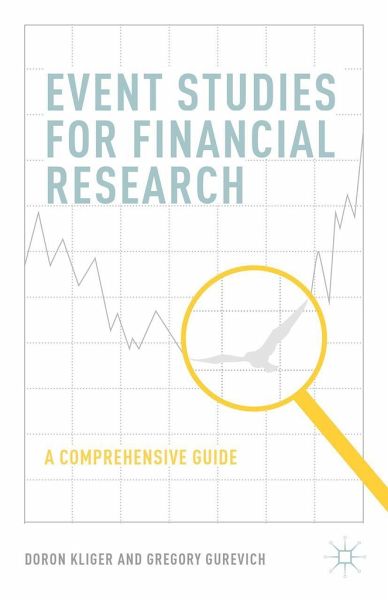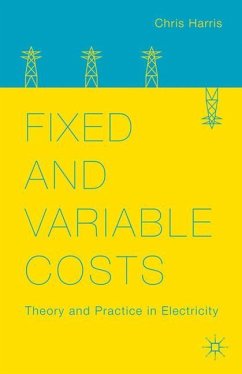
Event Studies for Financial Research
A Comprehensive Guide
Versandkostenfrei!
Versandfertig in 6-10 Tagen
98,99 €
inkl. MwSt.
Weitere Ausgaben:

PAYBACK Punkte
49 °P sammeln!
Event Studies are overwhelmingly widespread in financial research, providing tools for shedding light on market efficiency, as well as measuring the impact of various occurrences on public firms' security prices. Mastering the Event Study approach is essential for researchers and practitioners alike.Event Studies for Financial Research aims to help readers obtain valuable hands-on experience with Event Study tools and gain technical skills for conducting their own studies. Kliger and Gurevich provide a detailed application of their approach, which consists of: a description of the method; refe...
Event Studies are overwhelmingly widespread in financial research, providing tools for shedding light on market efficiency, as well as measuring the impact of various occurrences on public firms' security prices. Mastering the Event Study approach is essential for researchers and practitioners alike.Event Studies for Financial Research aims to help readers obtain valuable hands-on experience with Event Study tools and gain technical skills for conducting their own studies. Kliger and Gurevich provide a detailed application of their approach, which consists of: a description of the method; references; guided applications; and elaborated framework for implementing the applications.














